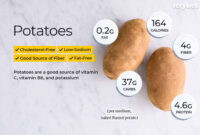There has been a lot of debate surrounding the relationship between nutritional yeast and candida. Candida is a type of yeast that is naturally present in our bodies. However, when it overgrows, it can lead to various health issues. Nutritional yeast, on the other hand, is a deactivated form of yeast that is commonly used as a food supplement due to its high nutritional content and delicious cheesy flavor.
Candida overgrowth occurs when there is an imbalance in the gut microbiome. This can be caused by numerous factors such as a weakened immune system, a diet high in refined carbohydrates and sugars, excessive stress, and the prolonged use of antibiotics. When candida overgrows, it can lead to symptoms such as digestive problems, fatigue, brain fog, and recurrent yeast infections.
Nutritional Yeast
Despite being a type of yeast, nutritional yeast does not contribute to candida overgrowth. This is because nutritional yeast is deactivated, meaning it cannot grow or reproduce. It is also low in sugar and does not contain the same components that can promote candida growth.
Moreover, nutritional yeast is rich in B vitamins, zinc, selenium, and protein. These nutrients are essential for maintaining a healthy immune system and supporting the body’s natural defense against candida overgrowth. Additionally, nutritional yeast contains a compound known as beta-glucan, which has been shown to have anti-inflammatory and immune-enhancing properties.
The Importance of a Balanced Diet

While nutritional yeast itself does not cause candida overgrowth, it is important to maintain a balanced diet to prevent and manage candida-related issues. A diet that is high in refined carbohydrates, sugars, and processed foods can feed candida and contribute to its overgrowth. Instead, focus on consuming a variety of whole, unprocessed foods such as vegetables, lean proteins, healthy fats, and complex carbohydrates.
Additionally, incorporating probiotic-rich foods into your diet can help restore the balance of good bacteria in the gut, which can support a healthy gut microbiome and reduce the risk of candida overgrowth. Some examples of probiotic-rich foods include yogurt, sauerkraut, kimchi, and kefir.
Conclusion
In conclusion, nutritional yeast does not cause candida overgrowth. In fact, it can be a beneficial addition to a balanced diet due to its high nutritional content. However, it is important to maintain a healthy lifestyle, including a well-rounded diet and stress management, to prevent candida overgrowth. If you suspect you may have candida overgrowth, it is always best to consult with a healthcare professional for an accurate diagnosis and personalized treatment plan.


